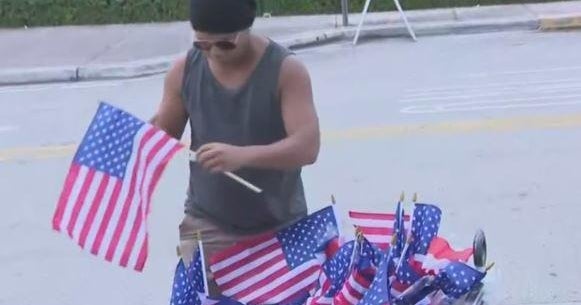NATO ambassador calls Trump's comments on Russia "irrational and dangerous"
Washington — U.S. Ambassador to NATO Julianne Smith criticized former President Donald Trump on Thursday for his recent comments suggesting he would not protect member countries from Russia, calling the remarks "irrational and dangerous."
"Encouraging the Kremlin to attack NATO allies is irrational and dangerous," Smith told CBS News. "It puts U.S. soldiers and our friends in Europe, their soldiers, at risk and increased danger."
At a campaign stop earlier this month, Trump, the Republican front-runner for the GOP presidential nomination, said he would encourage Russia to do "whatever the hell they want" to member countries that do not meet defense spending goals. The comments spurred a political firestorm. Trump doubled down on the comments this week, saying he wouldn't protect NATO countries if they don't increase defense spending.
NATO members commit to spending at least 2% of their GDP on their own national defense but do not contribute directly to the alliance. Smith noted that "there are no dues here at NATO."
"It is not a country club," she said. "But instead we've asked allies to invest in their own defense, so collectively we'll all be stronger and we'll have more resources from which we can draw."
The ambassador noted that while just three allies fulfilled the 2% commitment a decade ago, that number has grown to 18. She called the growth a "huge achievement" for the alliance.
"The bottom line is that allies are now making those investments that they need to, and we're all better for it," Smith said.
Other leaders have fiercely rebuked Trump for his comments. Earlier this month, NATO Secretary General Jans Stoltenberg said in a statement that "any attack on NATO will be met with a united and forceful response," and that "any suggestion that allies will not defend each other undermines all of our security." Article V of the NATO treaty requires all members to respond if any member is attacked.
"I expect that regardless of who wins the presidential election, the U.S. will remain a strong and committed NATO ally," Stoltenberg said.
The discourse surrounding Trump's comments comes amid a perilous moment for Ukraine in its fight with Russia, whose forces recently captured Avdiivka, a key Ukrainian city. News of Russian opposition leader Alexey Navalny's death in recent days has also added to global concerns.
U.S. aid to Ukraine has been stalled in Congress, fueling concerns about dwindling supplies and ammunition. Col. Martin O'Donnell, a spokesperson for the U.S. Army's combined Europe and Africa command, told CBS News in Poland that the command expects "to run out of money before summertime" without congressional action.
"There's a lot of risk right now if we don't get money," O'Donnell said.
House Speaker Mike Johnson dashed the hopes of bringing up a $95 billion Senate-passed foreign aid bill in the lower chamber last week, a package that includes tens of billions of dollars for Ukraine. Smith said on Thursday that she "can't stress enough how important this assistance is."
"They need this assistance now," she said. "The Ukrainians are fighting to defend their own territory, but they're also fighting to defend the values that we hold dear. And we need to stop Russia now in Ukraine, get the Russians out of Ukraine, so they don't get any second thoughts about going further westward and moving into NATO territory."



